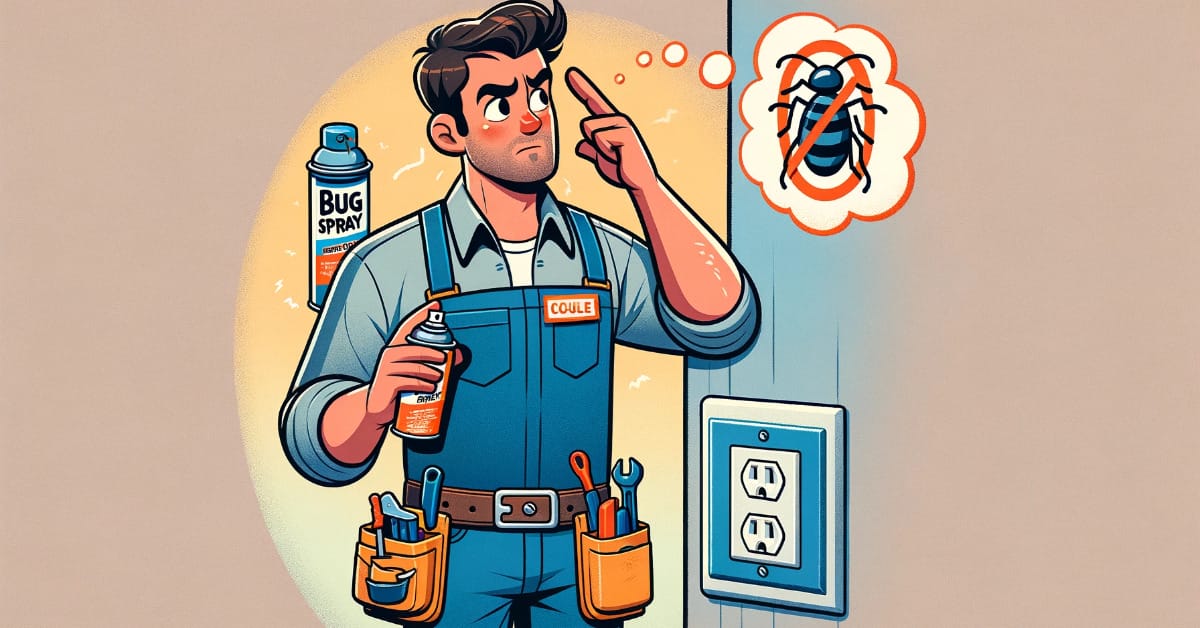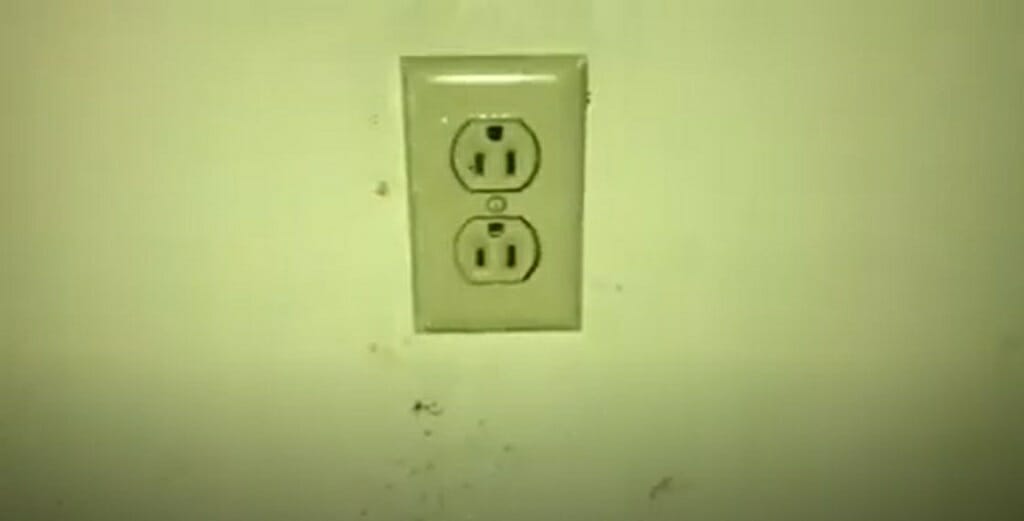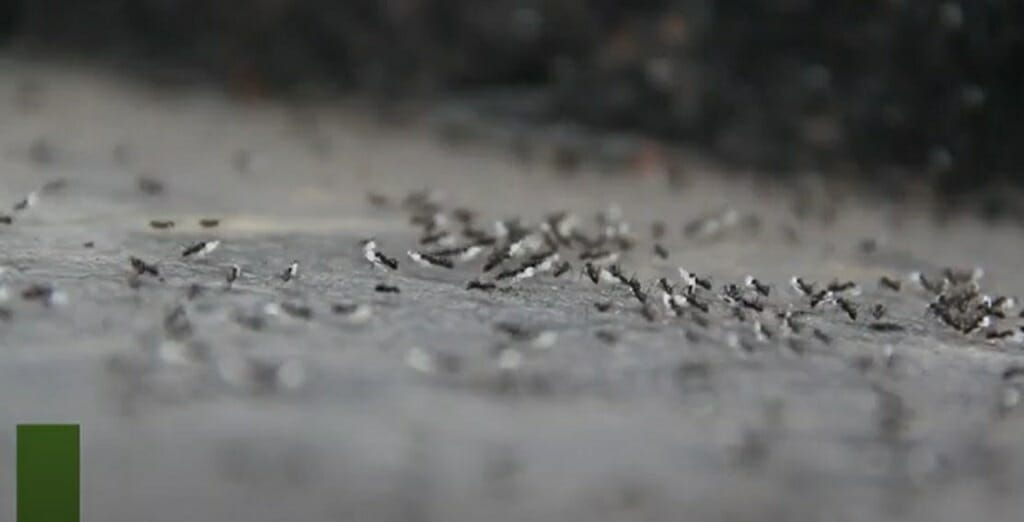Can I Spray Bug Spray in an Outlet?(Safety & Alternatives)

Are you planning to spray bug spray into an electric outlet? Hold on a minute. First, read this article.
Generally, using bug spray in an outlet is not recommended. Although it may eliminate ants, it can cause additional issues. For example, the ants will die, but their carcasses will remain within the outlet. Furthermore, the bug spray could potentially trigger the circuit breaker.
Learn more in the below article.
Why You Shouldn’t Spray Bug Spray in an Outlet

Yes, you can spray bug spray into an electrical outlet. But after that, you’ll have to deal with much more problems than small active ants.
Without a doubt, bug spray will kill all the ants that live in the outlet. But the aftermath won’t be fun.
After killing the ants, you’ll have to deal with their carcasses.
Dead insect bodies inside an electrical outlet can cause a range of issues:
- Fire hazard: The accumulation of dead insect bodies may create a fire hazard, as they are flammable and can ignite when exposed to heat or electrical sparks.
- Short circuit: The presence of dead insects could cause a short circuit by creating a conductive bridge between the electrical contacts. This may result in damage to the electrical system or connected devices.
- Reduced electrical efficiency: The build-up of dead insects can obstruct the proper functioning of the outlet, causing reduced electrical efficiency or connection problems for plugged-in devices.
- Attract more pests: The presence of dead insect bodies can attract other pests, such as ants or scavenging insects, leading to a larger infestation problem.
- Foul smell: As dead insects decompose, they can produce a foul smell, unpleasant and difficult to eliminate.
To avoid these issues, it’s essential to employ safe and effective pest control methods that won’t compromise your home’s electrical system.
Secondly, spraying bug spray into a live outlet can cause a short circuit breaker might trip. And you might have to replace the outlet after that.
Because of the above reasons, I never use bug spray on electrical outlets. That doesn’t mean that the bug sprays are bad. They are good, but not for the electrical outlets.
After all, there are easier ways to handle this pest problem.
Ants and Electrical Outlets

Most US households deal with this issue daily. But have you ever thought about why ants like electrical outlets?
The main reason ants are attracted to the outlets is the heat. When the outlet generates heat, it will keep ants warm. Hence, they gather around such outlets often.
How to Handle an Ant Problem Without Spraying Bug Spray?
If you are facing an ant problem in your outlets, there are one or two things you can do to get rid of them.
Handling an ant problem in an electrical outlet without bug spray requires a combination of safe pest control methods and preventive measures. Here are some steps you can take:
- Turn off the power: Before doing anything with the outlet, ensure the power is turned off at the circuit breaker to avoid electrical hazards.
- Use bait stations: Instead of spraying bug spray directly into the outlet, place ant bait stations near the affected area. The ants will return the bait to their colony, killing the entire colony over time. Make sure to follow the instructions on the bait station packaging.
- Diatomaceous earth or boric acid: Apply food-grade diatomaceous earth or a boric acid and sugar solution around the outlet. These substances can help to kill ants without damaging the electrical components. Be careful not to apply them directly inside the outlet.
- Seal entry points: Inspect your home’s exterior for any cracks or gaps that could be entry points for ants. Seal these openings with caulk or other appropriate materials to prevent further infestations.
- Maintain cleanliness: Keep the area around the outlet clean and free of food debris, as ants are attracted to food sources. Regular cleaning and proper food storage will make your home less appealing to ants.
- Control moisture: Ants are attracted to moisture, so ensure no water leaks or excess humidity near the outlet. Repair any leaks and use a dehumidifier if necessary.
- Use natural repellents: Some natural substances, like peppermint or lemon essential oils, can help repel ants. Apply a few drops of the essential oil on a cotton ball and place it near the outlet. Replace the cotton ball every few days for the best results.
Properly Sealed Outlet
This method should be used before ants get inside the electrical outlet. If the outlet has a large enough gap that ants can go through, you should seal them off immediately.
Otherwise, these ant colonies might spread to all outlets, which could be disastrous. Hence, check every outlet in your house and seal all gaps.
Pest Control Professional
When ants get inside your outlets, don’t use bug spray. Instead, contact a pest control professional. An experienced professional will know how to handle such pest problems without damaging the electrical outlet.
What Should You Do Until a Pest Control Professional Arrives?
After you contact the pest control professional, shut down the power of the infected areas. It will prevent any short-circuit situations.
References
Video References
The Pests Control Network
Cowleys Pest Services
